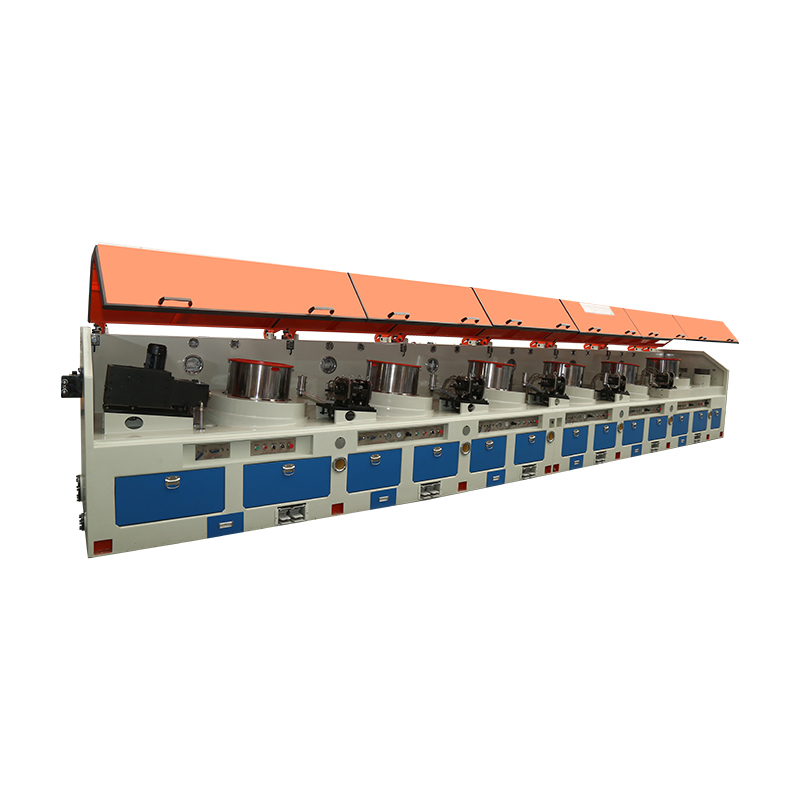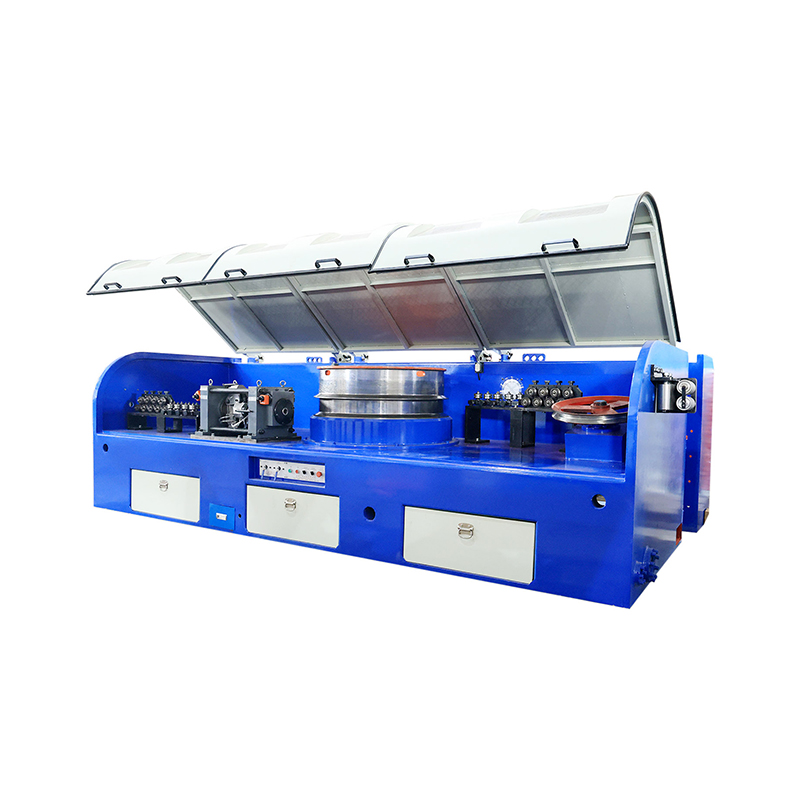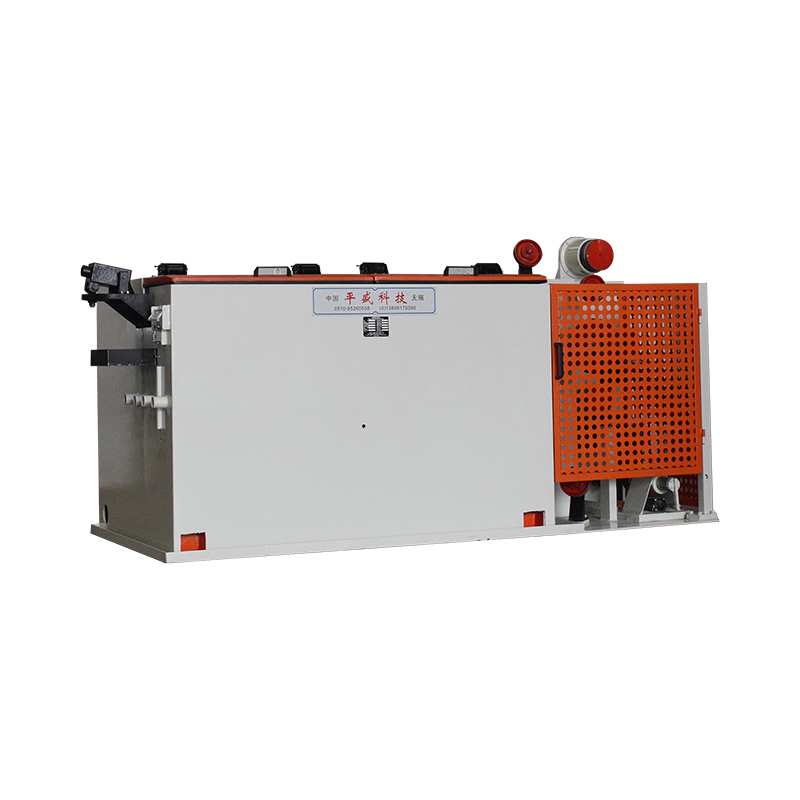Why Are Multi-Unit Wire Take-Up Machines Crucial for High-Volume Wire Production?
In high-volume wire production environments, efficiency, consistency, and quality control are paramount. Multi-unit wire take-up machines play a crucial role in streamlining these processes by ensuring smooth, continuous operation and reducing the risks associated with manual handling. These machines are designed to manage large volumes of wire, often in automated systems, making them an indispensable part of modern manufacturing setups.
What is a Multi-Unit Wire Take-Up Machine?
A multi-unit wire take-up machine is an industrial device designed to collect, store, and manage wire during the manufacturing process. It typically features multiple spools or units, which can simultaneously wind wire onto separate reels, allowing for continuous operation. These machines are commonly used in industries such as electrical cable manufacturing, wire drawing, and other wire-based production processes where large quantities of wire need to be wound, stored, and managed without interruption.
Key Features of Multi-Unit Wire Take-Up Machines
Multi-unit wire take-up machines are designed with several key features that set them apart from single-unit machines. These features allow them to handle large volumes of wire efficiently and effectively:
- Multiple Spools: The ability to accommodate multiple wire spools allows for continuous winding and minimizes downtime.
- Automated Tension Control: Ensures consistent winding tension, preventing wire breakage or tangling.
- High-Speed Operation: These machines are designed for high-speed operations, which are essential in high-volume production lines.
- Space-Saving Design: The compact nature of multi-unit systems maximizes space efficiency in the production area.
- Customizable Reel Sizes: Different reel sizes can be used depending on production needs, making the system flexible and adaptable.
How Multi-Unit Wire Take-Up Machines Improve Efficiency in High-Volume Wire Production
High-volume wire production requires precision and speed, and multi-unit wire take-up machines are built to meet these demands. Here’s how they improve efficiency:
Reduced Downtime
With multiple units working simultaneously, these machines significantly reduce downtime. While one reel is in operation, others can be prepared, so there’s minimal interruption when changing or replacing reels. This continuous operation ensures that the production line maintains a high level of output.
Consistent Quality Control
Maintaining consistent tension and speed throughout the winding process is crucial to achieving high-quality finished products. Multi-unit wire take-up machines are equipped with automated tension control and speed regulation systems that help ensure consistent wire quality. This reduces the chances of defects like inconsistent coil formation, wire tangling, or stretching.
Space and Labor Efficiency
By consolidating multiple winding units into one machine, space usage is optimized, and manual labor is minimized. Operators don’t need to manage multiple machines, reducing the overall manpower required for the same output. This also lowers labor costs and simplifies operator training, as fewer controls are needed.
Increased Output
The ability to run multiple reels at once increases the overall output of the production line. While a traditional take-up machine might handle one reel at a time, a multi-unit machine allows for simultaneous processing, directly increasing production capacity and reducing cycle times.
Applications of Multi-Unit Wire Take-Up Machines
Multi-unit wire take-up machines are used across various industries, where the demand for high-volume wire processing is prevalent. Some of the primary applications include:
Electrical Cable Manufacturing
In electrical cable production, multi-unit wire take-up machines are used to wind copper, aluminum, or other types of wire onto reels. These machines are crucial for producing high-quality cables in bulk, such as power cables, telecommunications cables, and control cables.
Wire Drawing and Coating
In the wire drawing process, multi-unit wire take-up machines help manage the drawn wire that is spooled onto reels after being processed. They are also used in wire coating operations, where the wire is coated with different materials, such as PVC, to create insulated cables.
Automotive and Aerospace
For industries like automotive and aerospace, multi-unit wire take-up machines are used to process specialized wires that require tight tolerances and high performance. This includes wiring harnesses for vehicles and aircraft, where precision and durability are critical.
Telecommunications
Telecommunication companies use multi-unit wire take-up machines for the production of fiber optic cables, coaxial cables, and other wire types. These machines help streamline the production of cables that are used in the vast global communication network.
Advantages of Multi-Unit Wire Take-Up Machines in High-Volume Production
When compared to single-unit machines, multi-unit wire take-up machines offer several advantages in high-volume production environments:
- Higher production capacity due to simultaneous winding operations.
- Better control over wire quality with automated systems.
- Increased uptime, as the machine can operate continuously without the need for frequent reel changes.
- Reduced labor costs due to automated and streamlined operations.
- More efficient use of factory space, as multiple units are consolidated into one system.
Conclusion
Multi-unit wire take-up machines are indispensable in high-volume wire production, offering key benefits such as increased output, reduced downtime, and consistent quality. Their ability to streamline operations, improve efficiency, and enhance product quality makes them an essential tool for industries that rely on large-scale wire processing. Whether for electrical cables, automotive wiring, or telecommunication lines, these machines are a critical component in achieving fast, high-quality wire production.


 EN
EN
 English
English Español
Español Français
Français Português
Português عربى
عربى














